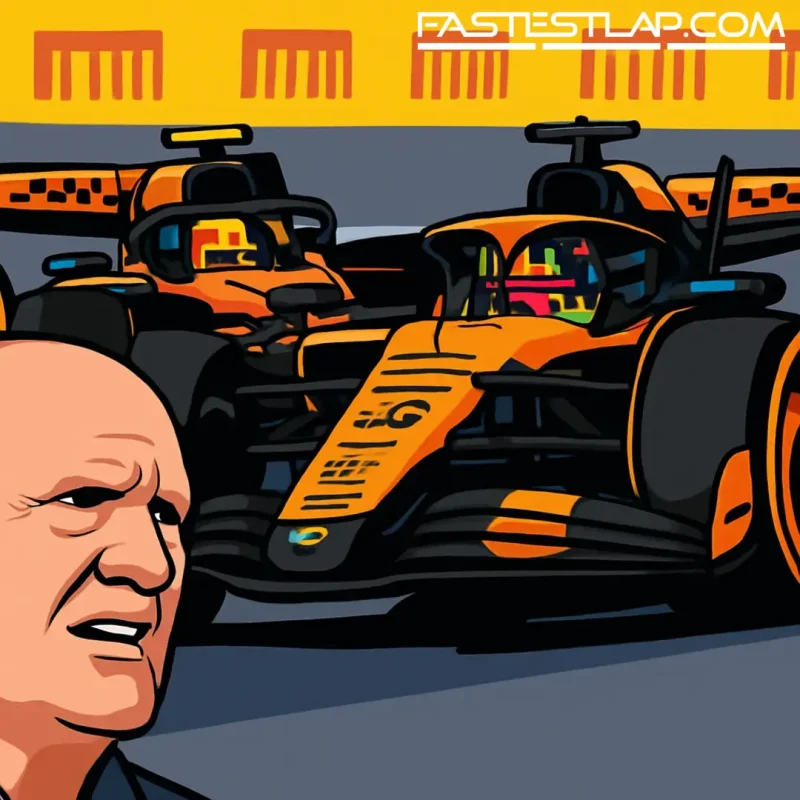Ron Dennis once drew a hard line in the gravel: a customer team doesn’t win championships. McLaren is using 2025 to scribble all over it.
After vaulting back to the top in 2024, Woking’s renaissance has shifted from feel‑good to formidable. Sixteen races in, McLaren’s scored 12 wins and seven one-twos, and the title math reads like a coronation rehearsal. Oscar Piastri and Lando Norris are locked in their own orange arm wrestle for the Drivers’ crown, while Max Verstappen sits 94 points adrift with eight rounds left. The Constructors’ fight? McLaren’s advantage is a canyon at 337 points.
That’s not just dominance; it’s the loudest counterargument yet to an old paddock doctrine. The car is powered by a Mercedes customer engine, and that’s exactly what raised Eddie Irvine’s eyebrows as he digested McLaren’s latest clinic at Monza. The former Ferrari man admitted he’s “amazed” by the turnaround — and couldn’t resist pointing out that Dennis, the architect of McLaren’s glory years, never believed a customer outfit could carry the crown.
To place that in context: McLaren’s last constructors’ title before 2024 was in 1998, during a full works partnership with Mercedes. Only in 2010 did Mercedes return as a works team, and since the 2022 ground‑effect reset, the factory Silver Arrows have been searching for their way back to the front. The irony’s not lost on anyone. Toto Wolff, deadpan as ever, recently joked that supplying McLaren with “our fast engines” might not have been his sharpest call. When your customer is pounding in one-twos, it’s fair to wonder who’s actually setting the standard.
But this is more than horsepower. McLaren’s execution has been ruthless, from strategy to development cadence to pitlane slickness. If 2023 felt like a rapid pivot and 2024 the arrival, then 2025 is the lap of the gods. Piastri’s precision and Norris’s consistency have turned qualifying rows into formation finishes, and aside from Verstappen’s vintage win at Monza, the orange machine has been the color of certainty on Sundays.
What makes it all sing is how far they’ve come in a short window. Zak Brown took charge of a bruised operation in 2018, and for a while McLaren felt like a legacy team learning how to breathe again. He hired well, chose his moment, and crucially trusted the people he put in place. The promotion of Andrea Stella to team principal in 2023 was the inflection point. The engineering discipline tightened, the development plan hit its marks, and the drivers were given a car they could bully — and that would bully back only in ways they understood.
Even Irvine, never shy of a jab, has been effusive in crediting Brown for the rebuild. And that’s significant. Because this isn’t just the story of a fast car; it’s the story of an organization rediscovering its edge. Dennis’s McLaren won everything there was to win in the 80s and 90s, and his standards still hang in the air in Woking. But the sport evolves. Today’s McLaren has absorbed that DNA, swapped the old school rigidity for a looser, modern operating style, and then gone and delivered the same outcome: wins, titles, and the psychological weight that comes with them.
If there’s a wrinkle, it’s the intra-team management. Monza reminded us that a runaway season can still throw up messy moments; team orders chatter is already echoing through the paddock. It’s the kind of debate McLaren hasn’t had to navigate since the peak Hamilton–Alonso days. But it’s also where race-winning teams really earn it — nailing the balance between letting their drivers fight and locking in the double they’ve worked so hard to build.
As for Dennis’s old hypothesis, the numbers on the 2025 scoreboard don’t lie. With a customer Mercedes power unit, McLaren has turned the championship into a two-driver private battle and pushed the Constructors’ into checkmate territory. The lesson? In modern F1, the badge on the cam cover is only part of the story. Architecture, aero, tire understanding, operational precision and two drivers capable of turning a good car into a great Sunday — that’s the edge. Works status is nice. Winning is nicer.
Dennis stepped away for good in 2017, after a tenure that produced seven Constructors’ and 10 Drivers’ titles. He built an empire. The current regime has built a rocket and strapped it to two young stars. Different eras, same vibe: McLaren, when it gets it right, has a way of making everyone else look a half-step slow.
There’s time left on the 2025 calendar and Verstappen needs no invitation to spoil a script, but the shape of this season is unmistakable. McLaren’s about to make a point that will echo for years: you don’t need to be a works team to rule the sport. You just need to be better — everywhere, every week, no excuses. And right now, that’s exactly what they are.




